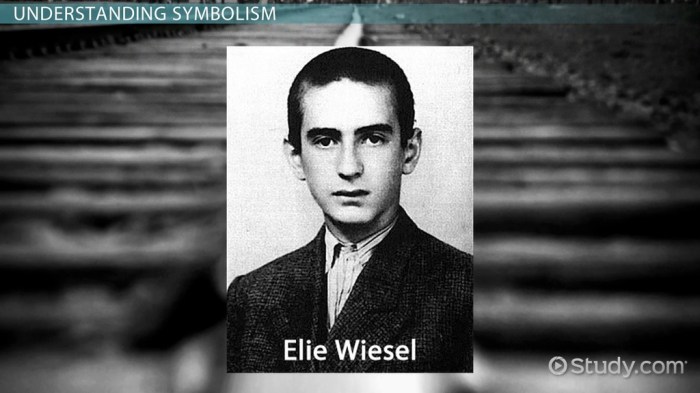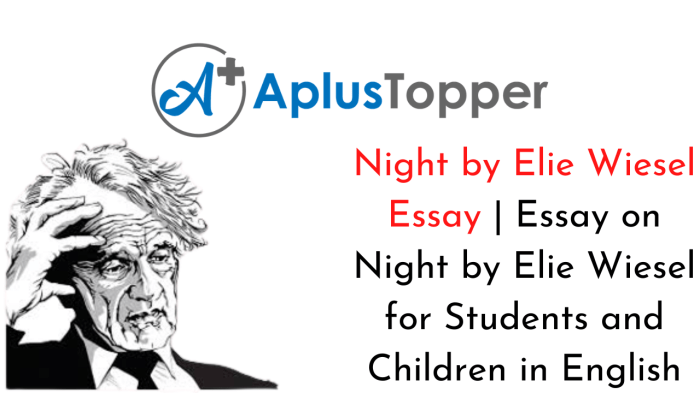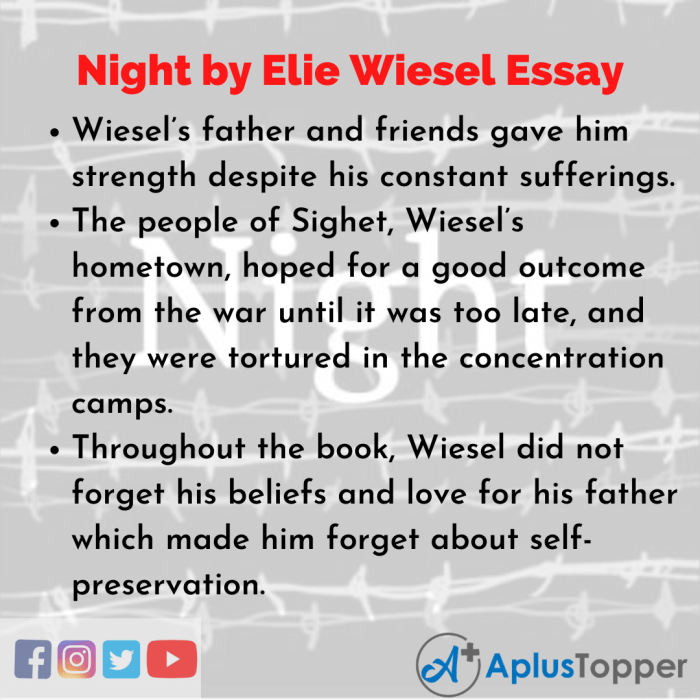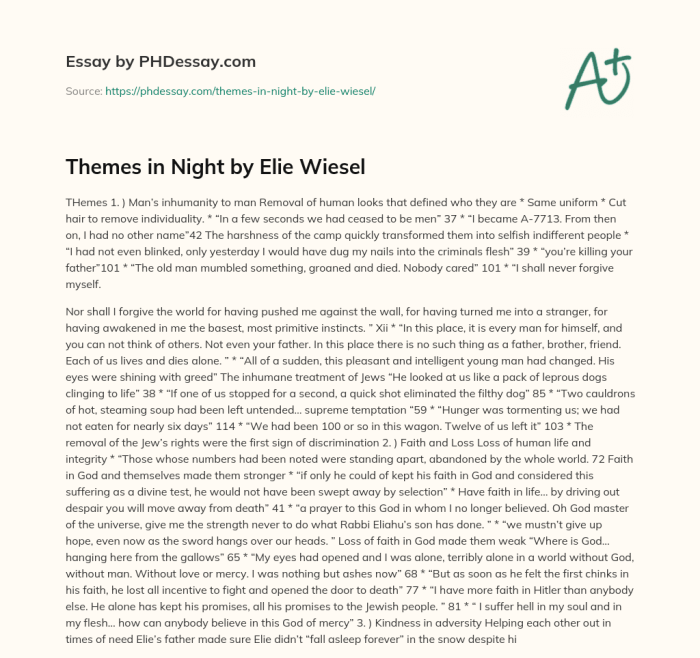Essay about the book night by elie wiesel – In Elie Wiesel’s seminal work, Night, the author recounts his harrowing experiences as a Holocaust survivor, offering a profound and unflinching account of the horrors endured by countless victims of Nazi persecution. This essay will delve into the historical context, literary techniques, and profound themes explored in Night, examining its enduring impact on readers and its significance as a historical document.
Wiesel’s personal journey as a survivor lends an unparalleled authenticity to his writing, providing a firsthand perspective on the atrocities committed during the Holocaust.
Elie Wiesel’s Background and Experiences: Essay About The Book Night By Elie Wiesel

Elie Wiesel’s personal experiences during the Holocaust significantly influenced his writing, particularly in his renowned memoir Night. Born in Sighet, Transylvania (now Romania), in 1928, Wiesel was a teenager when the Nazis invaded his hometown in 1944. Along with his family, he was deported to Auschwitz-Birkenau, where he endured unimaginable horrors.
Wiesel’s experiences in the concentration camps left an indelible mark on his soul. He witnessed the atrocities committed against his fellow Jews, including the murder of his mother and younger sister. These experiences shaped his understanding of humanity and the capacity for evil, which he later explored in his literary works.
Historical Context of Night
Night is set against the backdrop of the Holocaust, a systematic genocide perpetrated by the Nazi regime against the Jewish population of Europe. The Nazis, led by Adolf Hitler, implemented a racist ideology that targeted Jews for extermination.
The Holocaust began with the invasion of Poland in 1939 and escalated with the establishment of concentration and death camps across Europe. Millions of Jews were subjected to inhumane conditions, forced labor, and mass executions. Night depicts the horrors of this period through the eyes of Eliezer, a young Jewish boy who experiences the atrocities firsthand.
Literary Analysis of Night, Essay about the book night by elie wiesel
Wiesel employs a range of literary techniques in Night to convey the horrors of the Holocaust. Symbolism is prevalent throughout the novel, with objects and events representing deeper meanings. For instance, the darkness that permeates the concentration camps symbolizes the moral and spiritual void created by the Nazis.
Wiesel also uses imagery to create vivid and haunting descriptions of the atrocities committed. The use of fragmented storytelling and flashbacks further emphasizes the psychological and emotional trauma experienced by the characters.
Themes Explored in Night
Night explores a range of profound themes, including:
- Faith:Eliezer’s faith in God is tested and challenged throughout the novel, as he witnesses the horrors of the Holocaust. The novel raises questions about the nature of faith and the existence of God in the face of such suffering.
- Identity:The Holocaust forced Eliezer to confront his Jewish identity and the ways in which it defined his experience. The novel explores the complex relationship between individual and collective identity.
- Nature of Evil:Night provides a stark portrayal of the capacity for human evil. Wiesel confronts the question of how ordinary individuals could perpetrate such atrocities and explores the moral implications of such actions.
Questions and Answers
What is the significance of Night as a historical document?
Night provides firsthand accounts of the horrors of the Holocaust, serving as a crucial resource for understanding the atrocities committed during this dark period.
How does Wiesel use literary techniques to convey the horrors of the Holocaust?
Wiesel employs symbolism, imagery, and a fragmented narrative structure to create a vivid and emotionally resonant depiction of the Holocaust’s horrors.


